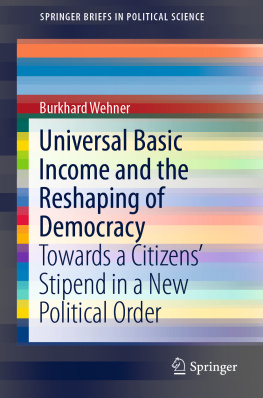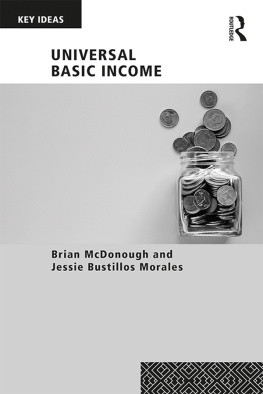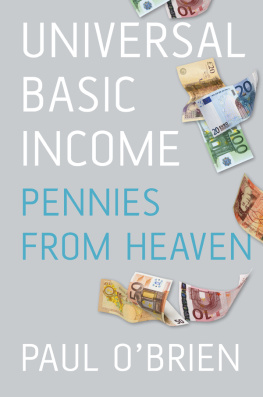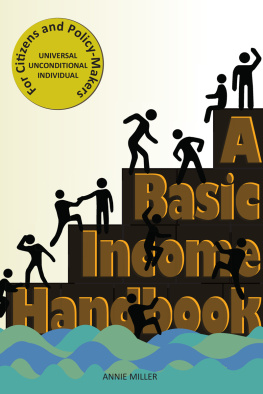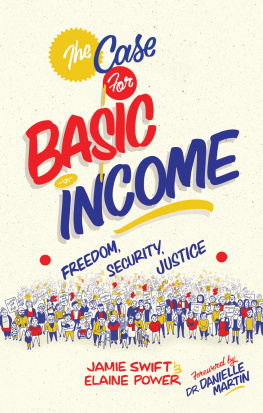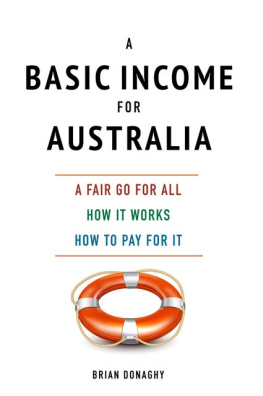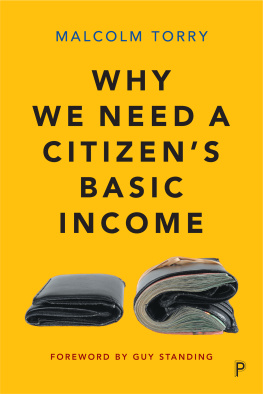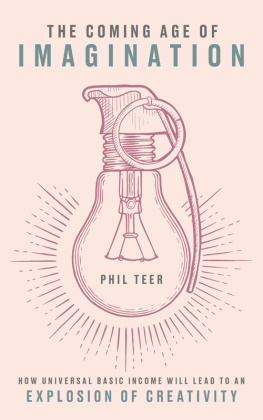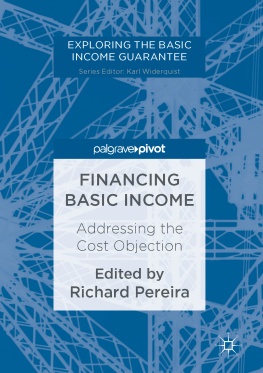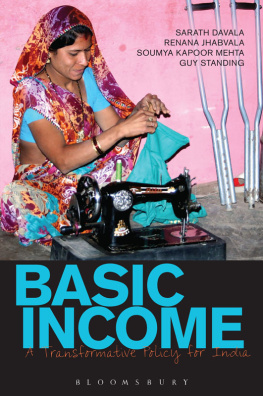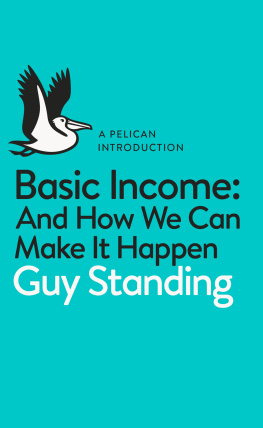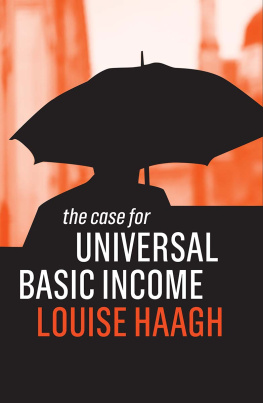Contents
Landmarks
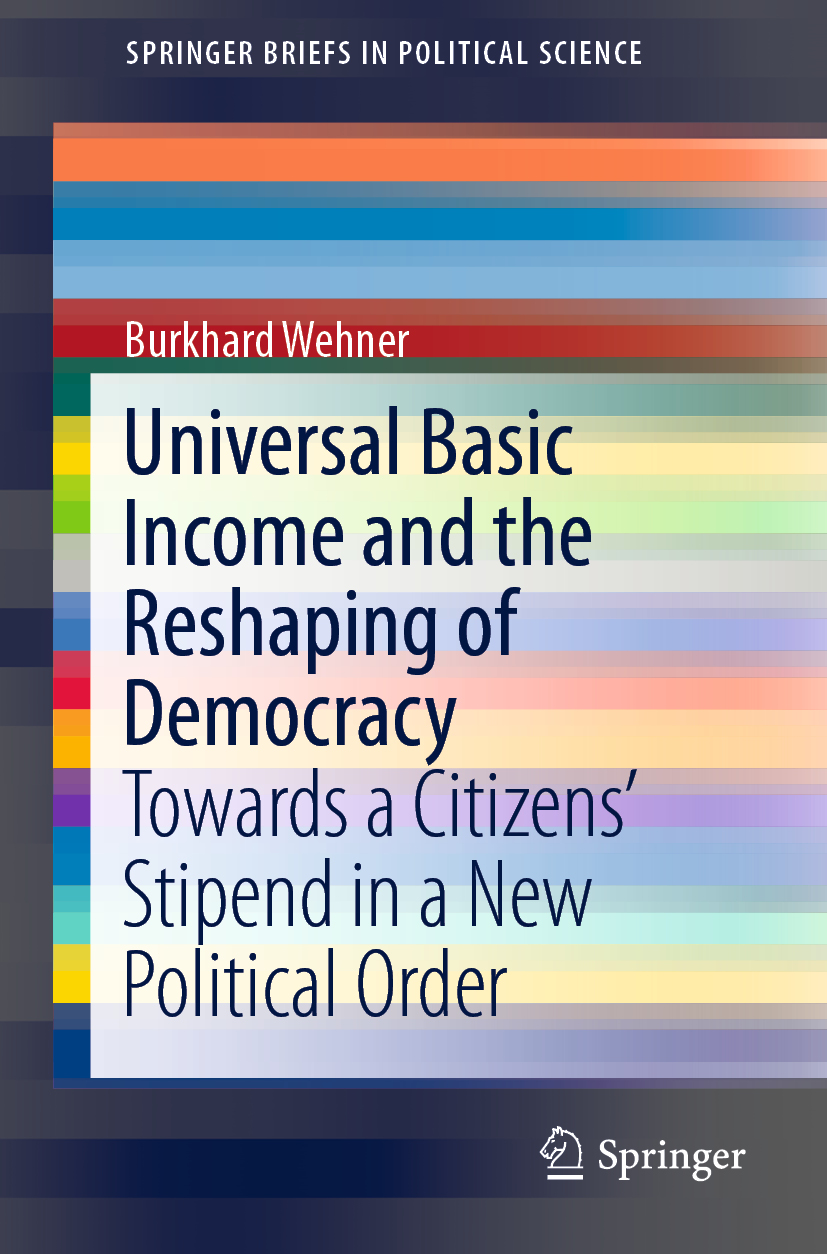
SpringerBriefs in Political Science
More information about this series at http://www.springer.com/series/8871
Burkhard Wehner
Universal Basic Income and the Reshaping of Democracy Towards a Citizens Stipend in a New Political Order
Burkhard Wehner
Horst, Germany
ISSN 2191-5466 e-ISSN 2191-5474
SpringerBriefs in Political Science
ISBN 978-3-030-05827-2 e-ISBN 978-3-030-05828-9
https://doi.org/10.1007/978-3-030-05828-9
Library of Congress Control Number: 2018964044
The Author(s), under exclusive license to Springer Nature Switzerland AG 2019
This work is subject to copyright. All rights are reserved by the Publisher, whether the whole or part of the material is concerned, specifically the rights of translation, reprinting, reuse of illustrations, recitation, broadcasting, reproduction on microfilms or in any other physical way, and transmission or information storage and retrieval, electronic adaptation, computer software, or by similar or dissimilar methodology now known or hereafter developed.
The use of general descriptive names, registered names, trademarks, service marks, etc. in this publication does not imply, even in the absence of a specific statement, that such names are exempt from the relevant protective laws and regulations and therefore free for general use.
The publisher, the authors, and the editors are safe to assume that the advice and information in this book are believed to be true and accurate at the date of publication. Neither the publisher nor the authors or the editors give a warranty, express or implied, with respect to the material contained herein or for any errors or omissions that may have been made. The publisher remains neutral with regard to jurisdictional claims in published maps and institutional affiliations.
This Springer imprint is published by the registered company Springer Nature Switzerland AG
The registered company address is: Gewerbestrasse 11, 6330 Cham, Switzerland
Contents
The Author(s), under exclusive license to Springer Nature Switzerland AG 2019
Burkhard Wehner Universal Basic Income and the Reshaping of Democracy SpringerBriefs in Political Science https://doi.org/10.1007/978-3-030-05828-9_1
1. Introduction
The discussion of universal basic income has come to a deadlock. So far, the questions whether, when, where, and how a universal basic income could eventually be put into political practice have played a minor role in this discussion. However, these questions belong not at the end, but at the beginning of the debate.
This line of inquiry brings the political logic of basic income into focus. This logic carries highly controversial political and scientific implications. It reveals that the politics of basic income must be discussed in a much wider context and over a much longer time horizon than hitherto done.
In the light of this logic, the institutions and rules of conventional democracy are shown to be insuperable barriers to universal basic incomebarriers not only to concrete political implementation, but also to large-scale and nationwide basic income experiments.
In the context of present democracies, basic income would neither find sufficient support with voters, nor could it be implemented with the exceptional foresight and competence necessary for such a project.
This book outlines alternative political institutions, rules, and strategies that could eventually make universal basic income politically viable.
The Author(s), under exclusive license to Springer Nature Switzerland AG 2019
Burkhard Wehner Universal Basic Income and the Reshaping of Democracy SpringerBriefs in Political Science https://doi.org/10.1007/978-3-030-05828-9_2
2. Basic IncomeA Project for Generations
This book is a largely extended version and in part a translation of Wehner (.
2.1 Unconditional Basic IncomeA Consensus-Building Term?
Unconditional basic income is difficult to discuss free from emotion and ideology. Controversies in this field result less from differences in economic calculations than from political and ideological prejudice. The discussion therefore cannot be objective and sober unless the political logic of unconditional basic income is fully revealed. This logic is the key to the question of whether, how, where, and when an unconditional basic income could be implemented.
From an economic point of view at least one thing should be uncontested: an unconditional basic income is affordable. But this is of course a trivial fact. There will be no denying that there is an amount greater than zero that the state can regularly pay its citizens as basic income. The dispute becomes acute, however, as higher amounts of basic income are discussed. Thendepending on ideological dispositionthis basic income may be regarded as an outgrowth of economic ignorance, as a leftist utopia, or as a fig leaf of a neo-liberal system. The fact that unconditional basic income has been incorporated in European party programs and is increasingly discussed in print media and talk shows makes the debate even more diffuse. Ideological biases will not be overcome even if the social and economic implications of unconditional basic income are examined in ever more state-organized field trials. Such trials can provide only a vague indication of the impact of a particular variant and amount of the basic income in a particular welfare state and social environment. They will not and cannot reconcile current conceptual controversies about unconditional basic income.
In the past, many advocates of unconditional basic income have taken it for granted that this income must secure a sufficient livelihood by itself. The higher the basic income, however, the more difficult it becomes to prove that it could be financed in a way that is politically acceptable. Most defenders of basic income do not tend to be very specific regarding how it would be financed. It is often unclear which taxes and which tax rates are to be used for financing and how existing social security and social transfers should be reformed when the basic income is implemented. It is also often left unclear who should be entitled to receive basic income, and there are divergent notions about the disbursement mode, in particular the possible offset of the basic income with the income tax. Most challenging is the matter of designing a process of transition from the existing social security system. The present debate has failed to make clear the winners and losers under an unconditional basic income regime and in particular how these relative effects may develop over time. Such non-transparency induces anxiety among presumed losers, and it can make them receptive to populist agitation against basic income proposals. Moreover, many advocates of unconditional basic income seek the support of a particular ideological group but present ideas objectionable to other groups. This tension may also contribute to a general negativity toward unconditional basic income. Thereby, the overwhelming rejection of unconditional basic income in the 2016 Swiss referendum did not come as a surprise; only about 10% of the electorate voted in favor.

